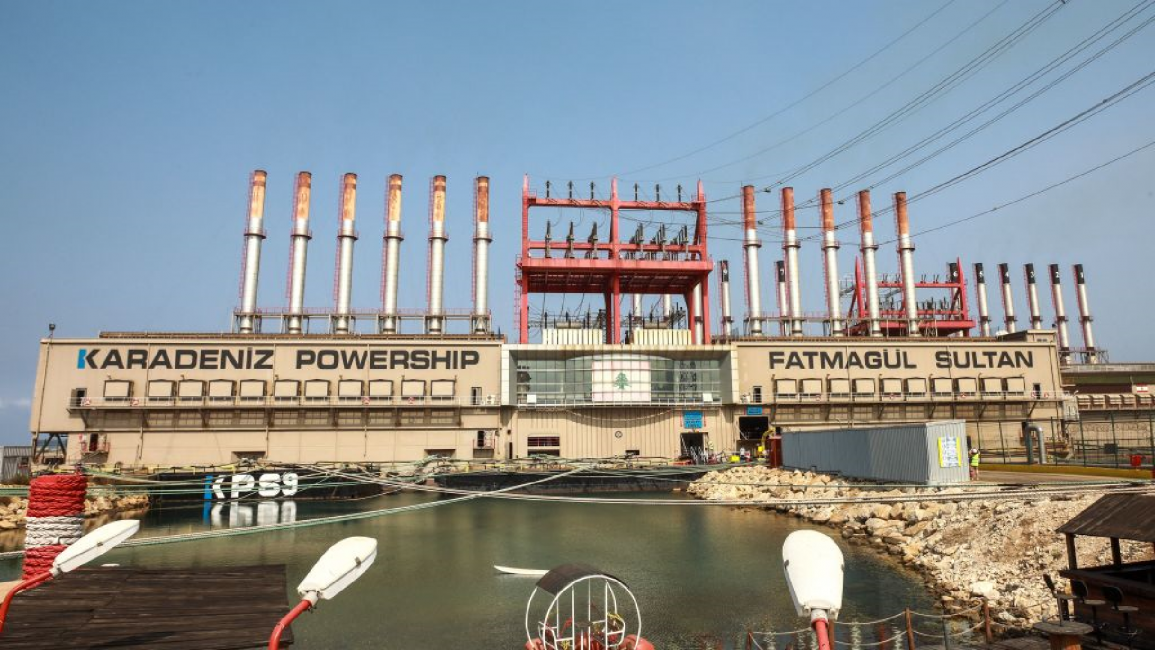Turkish power barges switch off supply to Lebanon amid payments dispute
A Turkish company providing Lebanon with electricity announced on Friday that it will turn off its two power barges over financial arrears, amid an ongoing legal probe.
Karpowership’s spokesman said the move was made “after making every effort to avoid a similar decision”, according to Lebanese media outlets.
“For 18 months we have dealt with total flexibility with the Lebanese state, and we continued to provide energy without getting paid our dues and without any payment plan, because Lebanon was going through very difficult times”, he was reported as saying, adding that no company would be able to function in such an unpredictable environment.
Both barges, stationed north and south of Beirut off the coasts of Zouk and Jieh, shut down at around 8 AM local time (5 AM GMT), according to local sources.
Karpowership had warned the Lebanese government last week that it would be forced to take such measures if no settlement plan was reached.
Lebanon receives 370 megawatts of electricity from the two barges, constituting around a quarter of its current total energy supply.
A court order earlier this month banned the two ships from leaving Lebanon to investigate alleged corruption in the case worth millions of dollars.
The judicial order included a request directed to the finance ministry stipulating not to pay any dues to Karpowership.
Financial Prosecutor Ali Ibrahim had said the ships will not be allowed to leave Lebanon before the state receives the penalty clause of $25 million from the company.
Karpowership has in turned threatened to resort to international courts to settle the case with Beirut.
The shutdown Friday now means Lebanese will have to face even longer electricity blackouts, as they reel under the country’s worst ever economic crisis.
Power cuts have been common in Lebanon ever since the end of the 1975-1990 civil war, forcing Lebanese to pay a second power bill to diesel run private generators for three to 12 hours each day during the outages, depending on the region.
The crumbling electricity sector has been blamed on decades of corruption and mismanagement.
The international community has long demanded a complete overhaul of the sector as one of the first major steps for reform.
It has cost the government nearly $50 billion in reserves from the central bank since the end of the war, or nearly half of Lebanon’s sovereign debt.
A parliament-approved $200 million emergency loan to import fuel was temporarily blocked by the Constitutional Council last week.
The central bank has warned against using up more funds for the sector, as it prepares to lift subsidies on other essential commodities at the end of May.
Follow us on Facebook, Twitter and Instagram to stay connected


![Minnesota Tim Walz is working to court Muslim voters. [Getty]](/sites/default/files/styles/image_684x385/public/2169747529.jpeg?h=a5f2f23a&itok=b63Wif2V)




![Debris near Rafic Hariri International Airport [Getty]](/sites/default/files/styles/image_330x185/public/2176162423.jpeg?h=a5f2f23a&itok=MCSK9mkM)
![An Israeli air strike on Jabalia killed teenage journalist Hassan Hamad [Screengrab/X]](/sites/default/files/styles/image_330x185/public/2024-10/hassan%20hamad1.jpg?h=c12e0b96&itok=Rd_dyCVp)
